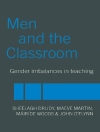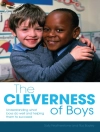There are very few inside accounts of academic departments, their history and ethnography. The Department of Social Anthropology at the University of Cambridge constitutes an appropriate case study to fill this gap. Having emerged from the work of figures such as Maine, Robertson Smith, Rivers and Haddon through to more recent international scholars such as Fortes, Leach, Goody, Gellner and Strathern, it is one of the oldest and most distinguished departments in the social sciences. It has trained many of the leading anthropologists working today, and many of its students are established in important positions around the world. It has added enormously to our understanding of the wider world through research in all continents and regions.
Based on thirty-five years of participant-observation fieldwork in the Department from 1975-2009, as Lecturer, Reader and Professor, Alan Macfarlane gives a brief history and reflects on life in the department, including the physical space, clothing, conversation, meetings and micro-politics. He also describes some of the changes over fifty years of post-colonial adaptation.
This small book is part of the celebration for the 100th anniversary of the founding of the Faculty of Archaeology and Anthropology held in Cambridge in February 2015.
Tabela de Conteúdo
Introduction
Chapter 1. A short history
Chapter 2. Where is the department?
Chapter 3. Who are the department?
Chapter 4. Funding of research
Chapter 5. Life in a Department
Chapter 6. Micro-politics and meetings
Chapter 7. A changing department
Chapter 8. Interviews on the web
Chapter 9. Seminars on the web
Sobre o autor
Alan Macfarlane was born in Shillong, India, in 1941 and educated at the Dragon School, Sedbergh School, Oxford and London Universities, from which he holds doctorates in both history and anthropology. He is the author of over twenty books, including The Origins of English Individualism (1978) and Letters to Lily: On How the World Works (2005). He has worked in England, Nepal, Japan and China as both historian and anthropologist. He was elected to the British Academy in 1986 and is now Emeritus Professor of Anthropology at the University of Cambridge and a Life Fellow of King’s College, Cambridge.












